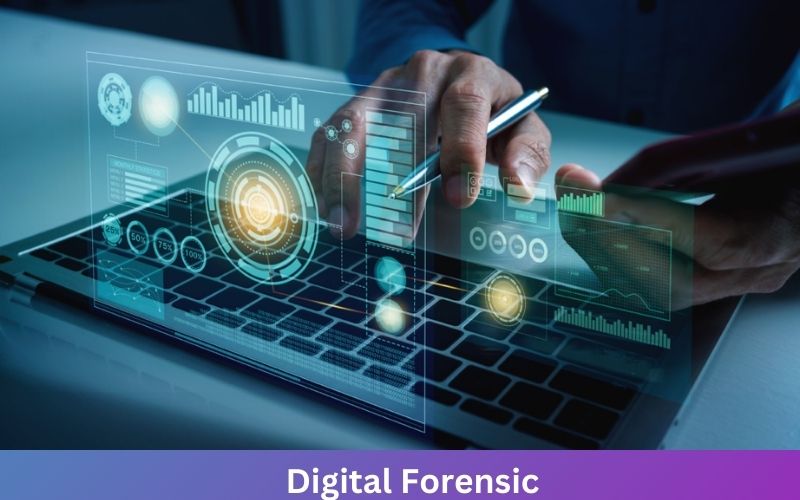In today’s digital age, where information is the lifeblood of modern society, the need for digital forensics has become more critical than ever. Digital Forensic, a specialized field of computer science, involves the preservation, identification, extraction, documentation, and interpretation of digital evidence from any electronic device. It plays a crucial role in various domains, including law enforcement, cybersecurity, and corporate investigations.
The Digital Footprint: A Trail of Evidence
Every digital interaction leaves a trace, a digital footprint that can be analyzed to uncover valuable information. From emails and text messages to social media posts and browsing history, these digital artifacts can provide vital clues in investigations. Digital forensics experts employ specialized techniques to extract and analyze this data, revealing hidden patterns, connections, and potential criminal activities.
The Tools of the Trade: Digital Forensic Techniques
Digital forensics is a rapidly evolving field, with new techniques and tools emerging constantly. Some of the most commonly used techniques include:
- Data Acquisition: This involves creating a precise copy of the digital device without altering the original data. Tools like dd and ProDiscover can be used for this purpose.
- File Analysis: Forensic experts analyze files to identify their type, content, and potential relevance to the investigation. Tools like Autopsy and Cellebrite can assist in this process.
- Network Forensics: This involves analyzing network traffic to identify suspicious activity, such as data breaches or unauthorized access. Tools like Wireshark and tcpdump are essential for network forensics.
- Mobile Device Forensics: As smartphones have become ubiquitous, analyzing data from mobile devices has become a crucial part of digital forensics. Tools like Cellebrite and XRY are used for extracting data from mobile devices.
- Cloud Forensics: With the increasing reliance on cloud-based services, cloud forensics has gained importance. Techniques like cloud API access and data extraction are used to analyze cloud-based data.
Challenges and Ethical Considerations
While digital forensics offers powerful tools for investigating crimes and uncovering hidden truths, it also faces several challenges and ethical considerations:
- Data Volatility: Digital evidence can be easily altered or deleted, making it crucial to act quickly and preserve the evidence.
- Technological Advancements: The rapid pace of technological advancements can make it difficult for forensic experts to keep up with the latest techniques and tools.
- Privacy Concerns: Digital forensics can raise privacy concerns, as it involves accessing and analyzing personal data. It is essential to adhere to legal and ethical guidelines to protect individual privacy.
- Legal Challenges: The admissibility of digital evidence in court can be a complex issue, requiring careful consideration of legal standards and procedures.
The Future of Digital Forensics
As technology continues to advance, the field of digital forensics will undoubtedly evolve. New techniques, tools, and challenges will emerge, requiring forensic experts to stay informed and adapt to the changing landscape. The future of digital forensics holds great promise, with the potential to play an even more critical role in ensuring justice and protecting society.
The Dark Web and Deep Web
The dark web and deep web, which are not accessible through standard search engines, can be a haven for illicit activities. Digital forensics plays a crucial role in investigating crimes that occur on these hidden networks. Techniques such as specialized search engines, network mapping, and data extraction are used to uncover evidence from the dark web and deep web.
Digital Forensic Challenges in Emerging Technologies
New technologies, such as blockchain, Internet of Things (IoT), and virtual reality (VR), present unique challenges for digital forensics. These technologies can create complex digital environments that require specialized techniques and tools to investigate.
The Importance of Ethical Considerations
Ethical considerations are paramount in digital forensics. Forensic experts must adhere to strict ethical guidelines to protect individual privacy, ensure the integrity of evidence, and maintain public trust. This includes obtaining proper authorization, following legal procedures, and avoiding unauthorized access to data.
The Future of Digital Forensics
As technology continues to evolve, the field of digital forensics will undoubtedly face new challenges and opportunities. The future of digital forensics may include:
- Advanced AI and Machine Learning: More sophisticated AI algorithms will be used to automate tasks, improve accuracy, and analyze complex data sets.
- Quantum Computing: Quantum computing may revolutionize digital forensics by enabling faster data analysis and decryption.
- Ethical Frameworks: The development of robust ethical frameworks to guide forensic investigations in emerging technologies.
- International Cooperation: Increased international cooperation to address cross-border digital crimes and ensure the harmonization of forensic practices.
Conclusion
Digital forensics is a vital field that plays a crucial role in our digital world. By extracting, preserving, and analyzing digital evidence, forensic experts can uncover hidden truths, solve crimes, and protect individuals and organizations. As technology continues to evolve, the importance of digital forensics will only grow.




